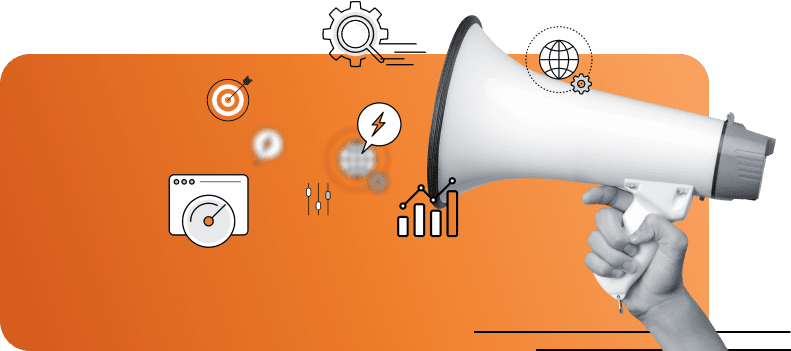In today’s digital-first world, search engine optimization (SEO) is essential for any business hoping to reach new customers online. As we move into 2025, the SEO landscape is more dynamic than ever—driven by artificial intelligence, the massive rise of voice search, and the importance of building long-term authority and trust.
If you want to turn website visitors into loyal customers, and ensure your digital marketing strategy achieves real growth, you need to keep up with the latest trends and apply methods that are proven to work.
What Is SEO? (And Why Is It a Game-Changer in 2025?)
Search engine optimization is the process of making your website visible and appealing to search engines like Google, Bing, and Yahoo. But it’s also about making your content helpful and relevant for real people.
- On-Page SEO: Target long-tail keywords that matter to your audience, use accurate meta tags, and structure your content for quick answers.
- Off-Page SEO: Focus on earning quality backlinks and building your website’s reputation through credible sources, guest posts, and niche directories.
- Technical SEO: Ensure your site loads fast, displays flawlessly on mobile, and prevents crawl errors that hinder your organic SEO performance.
Expert insight: Over 80% of high-ranking pages in 2025 combine on-page, off-page, and technical SEO for comprehensive optimization.
How Do Search Engines Work? (The Foundation of Digital Growth)
Understanding how search engines operate gives you a clear edge over your competitors. Google and other search engines follow a three-step process:
Crawling:
Specialized bots (often called spiders) travel from page to page, following links, reading content, and discovering new material.
Indexing:
The gathered information is sorted, categorized, and stored in huge databases—search engines break down every page’s title, images, text, and structure.
Ranking:
When users input a query—like “local SEO strategies for small business 2025”—algorithms determine and display the most relevant results.
Pro Tip: If your website structure is hard to navigate, or your internal links are broken, search bots may not index you. Perform regular site audits and use clear sitemaps to ensure visibility.
The Anatomy of the Modern SERP (Search Engine Results Page)
Knowing what the search results look like can guide your SEO priorities:
- Sponsored Results: Listings paid for by businesses, appearing at the very top with an “Ad” or “Sponsored” label.
- Local Three-Pack: A map and three business listings—critical for anyone focusing on “Google Business Profile optimization for local service providers.”
- Featured Snippets & People Also Ask (PAA): Quick answers, definitions, and related questions that amplify your authority if you rank here.
- Organic Listings: Pages chosen because they match user intent and demonstrate topical authority, relevance, and trust.
Ranking well organically means Google sees your site as a reliable answer to specific, long-tail queries—such as “step-by-step SEO checklist for ecommerce websites.”
Game-Changing Shifts in SEO for 2025
To stay visible and competitive in 2025, your SEO strategy must embrace these trends:
What Is the Impact of Voice Search and Conversational Keywords in 2025?
- Voice-activated searches now account for more than 30% of all queries.
- Target phrases like:
- “best digital marketing agency for healthcare”
- “SEO tips for photographers in Toronto”
- Use natural, question-based language throughout your content.
How Important Is Mobile Experience for SEO Rankings?
- Google evaluates the mobile version of your site for rankings:
- Use a responsive, mobile-first design.
- Compress images and streamline navigation.
- This is vital for keywords like “mobile SEO best practices for 2025” and “responsive web design for SEO success.”
How Is Artificial Intelligence Reshaping Search Engine Results?
- AI tools (including RankBrain and MUM) are setting the bar for user intent, relevance, and personalized search experiences.
- Create topic clusters with supporting content for broad queries:
- “how to generate leads from content marketing in 2025”
- “advanced link-building strategies for SaaS companies”
Why Optimize for Video Content in SEO?
- Adding video increases SERP visibility:
- Optimize titles/descriptions for long-tail keywords.
- Include transcripts to help with accessibility and search.
- Example search: “how to optimize YouTube videos for higher ranking”
Why Is E-E-A-T a Non-Negotiable Standard in SEO?
- Expertise, experience, authoritativeness, and trustworthiness (E-E-A-T) shape which websites Google trusts.
- Actions to boost E-E-A-T:
- Feature author bios with verifiable credentials.
- Regularly update statistics, tips, and “how-to” guides based on the latest industry research.
- Reference case studies and testimonials to show real-world success.
What Are the Best Tools for SEO in 2025?
- Leading platforms in 2025 include SEMrush, Ahrefs, Moz, and Surfer SEO for researching keywords and tracking rankings.
- Use Google Analytics 4 (GA4) and Google Search Console for performance insights.
- Consider AI-powered tools like Clearscope and Frase to optimize for semantic search and content relevancy.
- Implement tools for technical audits, such as Screaming Frog or Sitebulb, to ensure your website stays error-free.
How Can Small Businesses Compete in SEO in 2025?
- Focus on hyper-local SEO tactics like optimizing Google Business Profile listings and targeting “near me” searches.
- Leverage long-tail keywords unique to your location, industry, or services, such as “best family dentist in [City]” or “eco-friendly landscaping services for small yards.”
- Produce high-quality, authoritative content that answers specific community questions.
- Build relationships with local organizations to earn trusted backlinks and increase visibility in local search results.
Practical SEO Strategies for Real Results in 2025
How Do You Find the Best Long-Tail Keywords for Your Business?
- Zero in on long-tail, niche phrases:
- “affordable SEO packages for small online stores”
- “best SEO plug-ins for WordPress 2025”
- Use data-driven tools like SEMrush, Ahrefs, or Google’s Keyword Planner.
What Types of Content Solve Real User Problems?
- Focus on topics like:
- How-to guides
- Local business SEO case studies
- “Beginner’s guide to schema markup for nonprofits”
- Address FAQs tailored to your target audience.
How Can You Improve Technical and Human-Focused Optimization?
- Ensure quick load times and mobile compatibility.
- Write clearly, answer questions completely, and make your content easy to scan.
How Should You Monitor and Respond to Google Algorithm Updates?
- Set up Google Alerts for key changes.
- Join SEO communities to exchange tips and learn from respected voices in your industry.
- Mobile-first, responsive design
- Target conversational, long-tail keywords
- Consistently publish expert-driven, updated content
- Earn and maintain high-quality backlinks
- Track keyword rankings, page speed, and crawl errors
- Optimize for voice search and featured snippets
Final Takeaway: Winning with SEO in 2025
SEO is not a one-and-done task—think of it as an ongoing journey. The brands that win in 2025 will be those that embrace the evolving landscape and focus on unique, experience-based value.
Ready for more digital marketing mastery?
Explore in-depth guides on ignitedigital.com and bookmark us to stay at the forefront of SEO and digital strategy.
Next Steps for You:
- Audit your website’s mobile and technical performance
- Research long-tail keywords specific to your region or industry
- Start publishing content that answers today’s most pressing questions in your niche
- Leverage E-E-A-T by highlighting your expertise, real results, and trust signals everywhere
Start now, and you’ll enjoy a future-proof online presence—no matter how search evolves.









